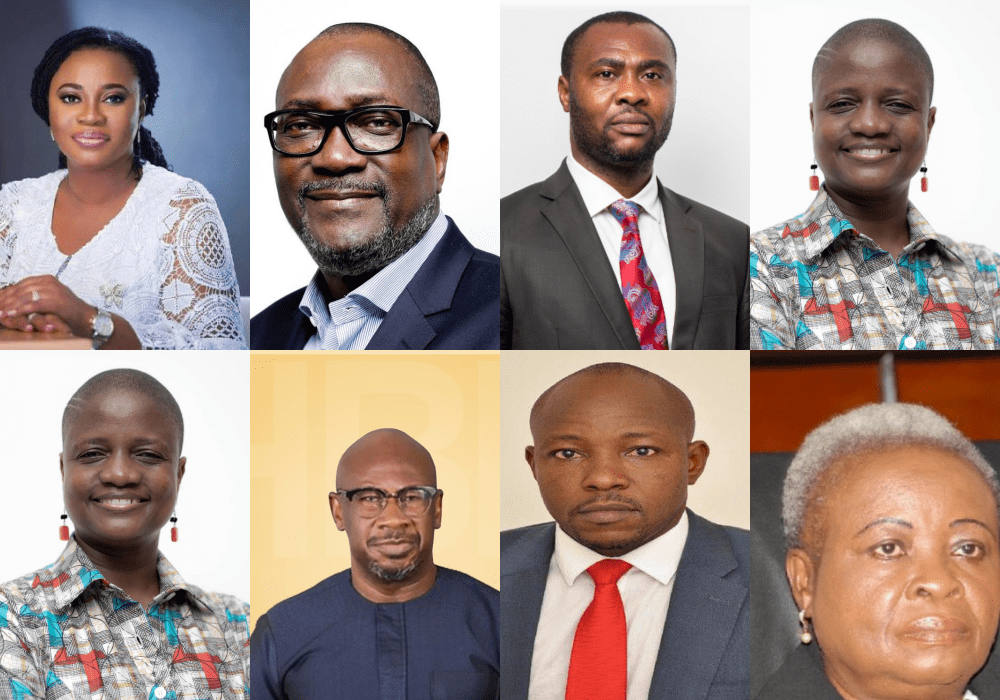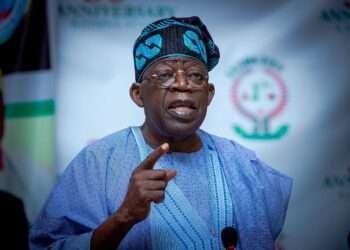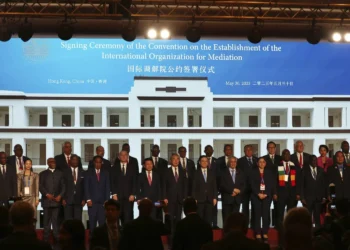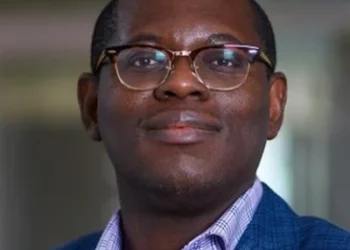President John Dramani Mahama’s formation of an eight-member Constitutional Review Committee set the precedent for a comprehensive review of Ghana’s 1992 Constitution. His reform agenda addresses long-standing governance challenges, particularly those related to executive overreach and the lack of true separation of powers among the three arms of government.
This initiative has earned national retrospection, with scholars and governance experts weighing in on its potential impact. One of the core objectives of Mahama’s constitutional reforms is to strengthen the independence of the judiciary and legislative arm of government.
Meanwhile, the current governance structure heavily tilts executive power in favor of the President, allowing extensive control over all appointments within the state structure.
Speaking with Vaultz News, a Senior lecturer in the Department of Philosophy at the University of Ghana, Dr. Stephen Nkansah Morgan has analyzed the necessity, feasibility, and expected outcomes of this constitutional review process.
One important issue raised during the conversation with Dr. Morgan was the issue of conflict of interest. As to whether the President’s decision is backed by any partisanship ideations as far as Ghana’s democracy is concerned.
According to Dr. Morgan there is no conflict of interest since the President has appointed an independent Committee to handle the entire process. He added that there would have been a conflict of interest if the President himself had chaired the Committee.
Dr. Morgan believes the concept of Separation of powers in a democracy is not illusory but could be attained. However, he emphasized that there ought to be a referendum to authenticate the authenticity of the review document after the entire process is done. Thus, to this effect, there cannot be a conflict of interest.
Additionally, he urged the review Committee to prioritize competence and efficiency by resorting to necessary consultations to make the process successful in meeting the changing needs of Ghanaians.

Although the President has been eulogized by the majority of Ghanaians for fulfilling his campaign promise, which is reducing cabinet ministers to 60, as it stands, he had directly appointed them from the legislative arm as permitted by the current constitution. When asked what that would mean for the review process, Dr. Morgan said;
”The constitutional reforms that would happen is forward-looking; it is not backward-looking. So, what can be done would’ve been done. As soon as the review constitution is[accepted], then the President would be forced to act by the accepted constitution. So, there is no problem at all.”
Dr. Stephen Nkansah Morgan Senior Lecturer University of Ghana
He further acknowledged the 5 months duration given to the committee to submit their report following the review process.
”I think [five months] is enough. If the Committee realized five months would not be enough, nothing prevents them from reaching out to the President and asking for more time.’’
Dr. Stephen Nkansah Morgan Senior Lecturer University of Ghana
He emphasized the need for the committee to build from the previous work done by the erstwhile government to speed up the review process.
Executive Influence, Institutional Reforms
Moreover, Dr. Morgan has raised concerns about the appointment of Chief Executive Officers (CEOs) of state institutions by the President, questioning its impact on governance and the principle of separation of powers.
According to him, the executive arm of government exercises considerable influence over these institutions, which are meant to function with administrative independence.
“I think members of the Constitution Review Committee would see that and find a way to limit government influence in these institutions regardless of political power. If governments keep changing CEOs, Boards [and] Committees, it in a way slows down the work they do.’’
Dr. Stephen Nkansah Morgan Senior Lecturer University of Ghana

He emphasized the importance of allowing these institutions to employ professionals based on merit rather than political affiliation. As a solution, Dr. Morgan proposed an alternative appointment process.
“These CEOs of state institutions should not necessarily be based on presidential appointment. They should be chosen in consultation with government representatives and a technical team or board of committee from the said institutions.’’
Dr. Stephen Nkansah Morgan Senior Lecturer University of Ghana
Such a model, he believes, would ensure continuity in governance and prevent the frequent resignations that occur when new governments assume office. Dr. Morgan cited the University of Ghana’s appointment process as a model for other state institutions.
“Taking the University of Ghana, for instance, the government does not appoint the Vice-Chancellor for us. There have been instances of [attempted] influence, but they were unsuccessful. The government should not appoint the Vice-Chancellor because it is a state institution.’’
Dr. Stephen Nkansah Morgan Senior Lecturer University of Ghana
This, he said, serves as an example of how other state institutions could operate independently, free from direct executive influence.
Dr. Morgan’s observations align with broader concerns about governance in Ghana and the need to uphold the principle of separation of powers.
As President Mahama’s constitutional review initiative progresses, these suggestions could form part of a broader discussion on Ghana’s governance reforms aimed at achieving Separation of Powers, strengthening institutional independence and efficiency.
READ ALSO: Government to Hold National Economic Dialogue on March 3-4




















